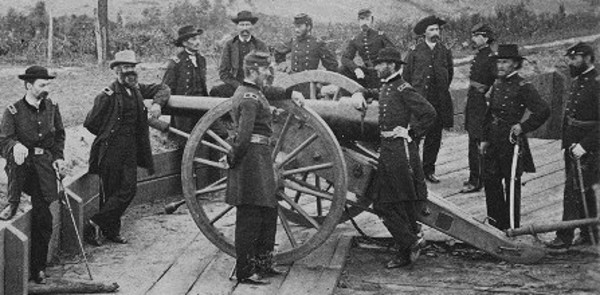

What the Gettysburg Address is to American political history, Major General William Sherman’s 1864 letter to the City Council of Atlanta is to American military history. It should be required reading for civilians and military professionals alike. Sherman’s gritty prose bridges the wild spirit of the frontier warfare of America’s past with its industrialized, idealistic future. Defining an “American way of war” has taken on a new urgency. As we consider our nation’s wars, present and future, Sherman’s letter is an underrated masterpiece.
Sherman’s plan to depopulate Atlanta of noncombatants and destroy its industrial capacity met resistance from the city’s residents. Sherman had none of it. “Now the war comes home to you you feel very different. You deprecate its horrors, but did not feel them when you sent car-loads of soldiers and ammunition, molded shells & shot to carry on war into Kentucky & Tennessee, desolate the homes of hundreds & thousands of good People,” he wrote. In his admonition of Atlanta’s city council, we hear echoes of America’s colonial frontier wars. Historian John Shy called those earliest conflicts “wars of annihilation.” For the first Americans, death by a random attack on an idle Tuesday was an everyday fear. Wars in that period were undertaken to wipe enemies out. Through celebrated military lore, the need to ground enemies into dust survived the Europeanization of the American military. Even in Sherman’s day, the rugged frontiersman was the romantic ideal of an American soldier.
Yet within this destructive vision, Sherman also casts an eye to the future. Sherman articulates a legal basis for the destruction. “Once admit the Union, once more acknowledge the Authority of the National Government, and instead of devoting your houses, and Streets and Roads to the dread uses of war. I and this army become at once your protectors, shielding you from danger let it come from what quarter it may.” Sherman’s war would be fought to reestablish the rule of law. Rather than a purely punitive campaign, the rebels only had to surrender and Sherman would be the first to welcome them back. Despite his aggressive rhetoric, during the March to the Sea Sherman ordered his commanders to avoid excessive force where it wasn’t needed. Unlike the war’s first years, Sherman also saw his application of military power as an extension of the people’s popular will: “I know that Such is the National Feeling. This feeling assumes various shapes, but always comes back to that of Union.”
The letter to the City Council of Atlanta can also be interpreted as a problematic document. Sherman’s contempt for the rebellion is on full display, and it can seem that he is relishing in war’s violence. While the idea of depopulating a city and laying waste to it is anachronistic, it bears noting that in some ideological quarters, Sherman’s violent message is celebrated. “War is cruelty, and you cannot refine it” he wrote to the City Council. “You might as well appeal against the thunder storm as against these terrible hardships of war.” To some, this sounds like a perfect policy statement.
Sherman’s Letter to the City of Atlanta mirrors its mercurial author. It also represents the articulation of a known turning point in American military history. Careful study of history is needed now. Unpacking a decade of failure while assessing future conflicts demands it. Civilian policy makers and mid-grade staff officers would do well to study the letter in detail while undertaking these historical case studies. How and why we fight is, after all, the basis of strategy. Something the United States hasn’t exactly excelled at.
Kyle Gaffney received his Master’s Degree in History from William Paterson University.
